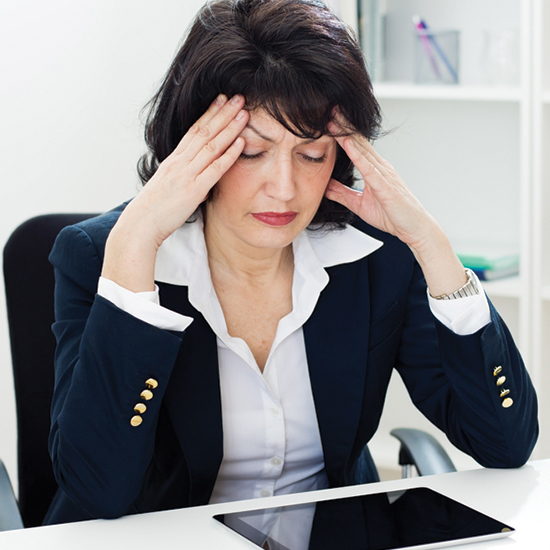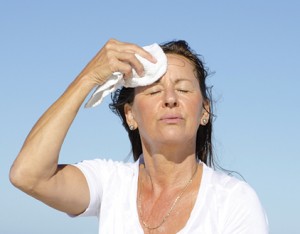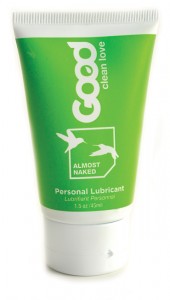Cheri Bufford is a licensed vocational nurse with Lunada Biomedical, which makes Amberen, a proprietary supplement that’s been clinically proven to ease many of the worse symptoms of menopause. Cheri has had a great deal of experience advising women on how to take Amberen and what to expect. FOF talked with her about the product, which the company calls “revolutionary.”

 What does Amberen do?
What does Amberen do?
Although menopause has as many as 35 different symptoms—hot flashes, sleeplessness, low libido and irritability among the most prevalent—they all have a common cause: Our bodies lose their ability to support hormonal balance. Instead of covering up symptoms, Amberen supports the hypothalamic-pituitary-ovarian axis, which is the foundation of a woman’s hormonal signaling system.
Amberen’s exclusive technology produces perfectly shaped ‘smart’ molecules (bio identical to the human body) that our bodies recognize and use. Once inside our cells, these molecules rejuvenate mitochondria (our cells’ power producers) and rebalance hormone levels. The supplement isn’t actually putting hormones back into our body, but it is triggering the connections that bring out our natural hormones.
So you’re saying Amberen actually helps our body produce increased levels of estrogen?
Yes, women tested in our clinical trials did get an increased level of estrogen. I have talked to thousands of women and the responses I get when they take Amberen choke me up. I get emotional when they call to tell me they feel like themselves again. Many women are so far down in menopause that it has affected their life.

What’s in Amberen?
Amino acids, vitamins and minerals
How long do you take Amberen?
It’s a 90-day course. While the majority of women are symptom free after 90 days, some women get relief within a few weeks and, for others, it takes longer.
We do recommend that you take a break after 90 days to allow your body to work on its own. If the symptoms are starting to return, you can go back on Amberen for another 90 days. The break, hopefully, will become longer and longer each time.
Does the relief last indefinitely?
Like with everything, people respond differently. It depends on the stage a woman is in. Perimenousal women may have a six-month break from symptoms after taking Amberen for 90 days. It’s perfectly safe, however, to continue taking it beyond 90 days.
 Can a woman take Amberen any time before, during or after menopause?
Can a woman take Amberen any time before, during or after menopause?
Amberen is not age specific. It is for any woman in perimenopause or menopause, as well as in post menopause. Some women still suffer from hot flashes, for example, when they are over menopause.
If I’m on HRT (hormone replacement therapy) should I stop taking them if I want to start taking Amberen?
We don’t recommend that a woman continue her hormone therapy. Check with your doctor, however, before getting off hormones. It also may take longer for someone previously on hormones to see the results of Amberen because the hormones could remain in her system for a while.
Supplements don’t have risks that hormones do. Also, we don’t advise taking other over-the-counter supplements for menopausal relief at the same time you take Amberen.
If I had a total hysterectomy, can I take Amberen?
It depends on why you had the hysterectomy. But since your adrenals produce estrogen, as well as your ovaries, you can generally take Amberen if you’ve had your ovaries removed.
Where is Amberen sold?
Previously, it was only available online and through call centers, but now it’s sold in many GNC stores.
Does Amberen make you more lubricated?
A lot of women tell me they are more lubricated and can enjoy sex again.
Are there any negative reactions?
Some women have gotten rashes—albeit few and far between—because they may be allergic to something in Amberen.
Will Amberen help reduce weight gained during menopause?
A lot of women start noticing fat that sits around the middle and doesn’t go away during menopause because of their hormone imbalance. Some who take Amberen start seeing inches come off their waists and their pants start fitting better. Of course, if you’re eating 10 cheeseburgers a day, the weight won’t fly off.

Will Amberen help if the only problem I’m experiencing is low libido?
I wouldn’t advise Amberen only for low libido, but there’s nothing wrong with trying it, especially since we have a trial period and it can be returned if it doesn’t work. We sell a 90-day course, which consists of two boxes paid and one free. Most women will notice changes in symptoms within the few couple of weeks. We encourage them to call for a consultation with one of our staff nurses if they don’t notice changes. We also encourage everyone to thoroughly read the literature. The two unopened boxes can be returned for a full refund at any time during the first 30 days after purchase,
Are there any meds that don’t react well with Amberen?
If you take Coumadin or blood filler, you should consult with your physician since there is a small amount of Vitamin E in Amberen, which has blood-thinning properties.
 Can anyone call for a consultation, even before taking Amberen?
Can anyone call for a consultation, even before taking Amberen?
We have nurses available through customer care from 5 am to 5 pm Pacific time. We also encourage new customers to talk to the nurses since they might have questions about how the medications they’re taking will react with Amberen. Consults are limited to 15 minutes for Amberen customers.
When was Amberen invented?
It was invented in Russia and introduced here in 2006.
Does Lunada make other products?
We recently came out with a male potency product.
 A few years ago, Deb’s doctor recommended that she have an STD panel (as in sexually transmitted diseases), to rule out the possibility that she had syphilis, among other diseases. “I told my doctor that was crazy, how could I possibly have syphilis,” Deb said, “but she responded that women or men who’ve had unprotected intercourse (anal, oral or vaginal) with more than one partner should be tested, so I went ahead and had my blood taken.” (more…)
A few years ago, Deb’s doctor recommended that she have an STD panel (as in sexually transmitted diseases), to rule out the possibility that she had syphilis, among other diseases. “I told my doctor that was crazy, how could I possibly have syphilis,” Deb said, “but she responded that women or men who’ve had unprotected intercourse (anal, oral or vaginal) with more than one partner should be tested, so I went ahead and had my blood taken.” (more…)

 And what we want is for our sex lives to be as vibrant today (well, almost as vibrant) as they were decades ago. So we’re leading the conversation about sexual health, and thankfully, brands are stepping up to deliver products that promise to help give us the best sex lives possible.
And what we want is for our sex lives to be as vibrant today (well, almost as vibrant) as they were decades ago. So we’re leading the conversation about sexual health, and thankfully, brands are stepping up to deliver products that promise to help give us the best sex lives possible. 







 I have been working in the field of personal lubricants for over a decade. It became an occupation when I desperately needed a solution to the burning, itching reactions I experienced when using petrochemical-based products, which continue to be used widely and dominate the intimacy market. Over the years, I have worked to produce lubricants as clean, natural and healing as possible and was graced to find a formulator who used his deep knowledge of ingredients to create natural and organic products without petrochemicals.
I have been working in the field of personal lubricants for over a decade. It became an occupation when I desperately needed a solution to the burning, itching reactions I experienced when using petrochemical-based products, which continue to be used widely and dominate the intimacy market. Over the years, I have worked to produce lubricants as clean, natural and healing as possible and was graced to find a formulator who used his deep knowledge of ingredients to create natural and organic products without petrochemicals.


